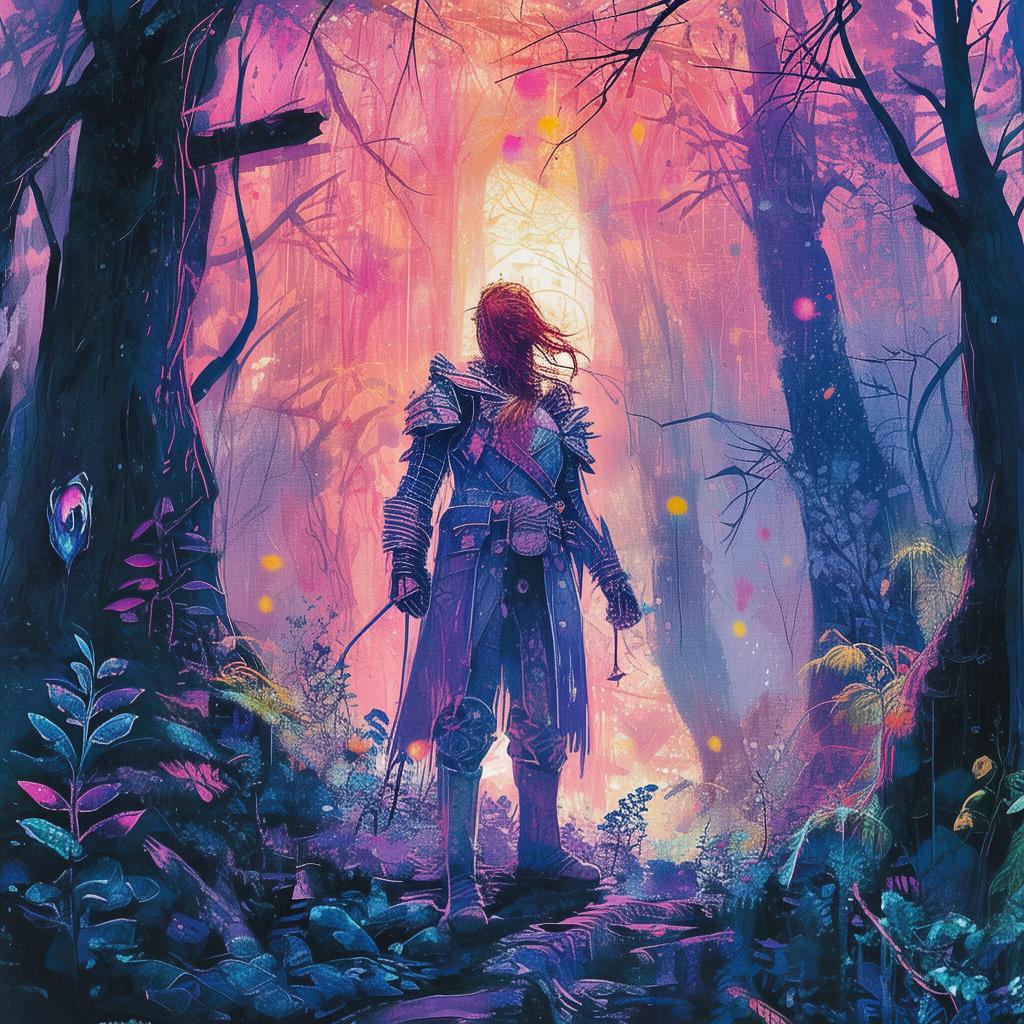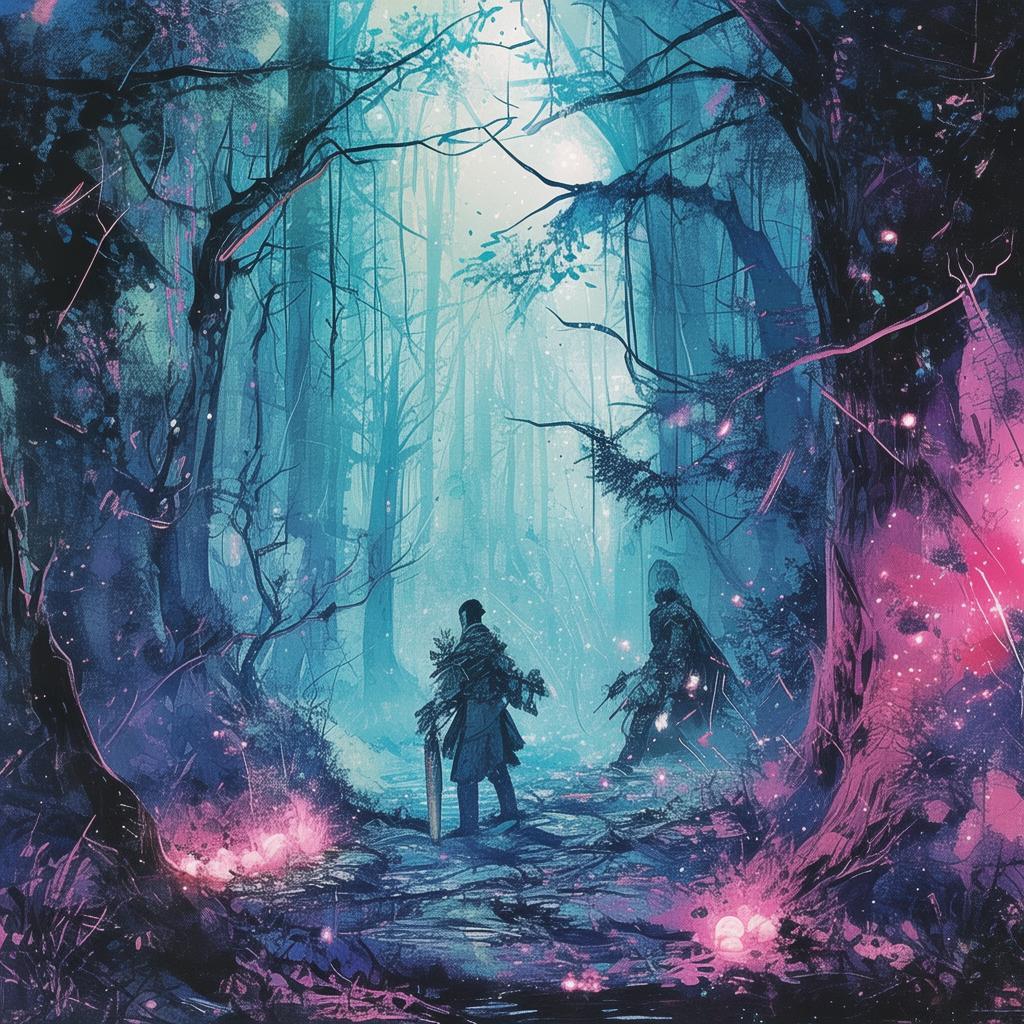The Lute of the Lost King
In the verdant valley of the ancient kingdom of Jin, where the whispers of history are woven into the very fabric of the land, there lay a lute that had been silent for centuries. Its wood was aged and its strings, once plucked with the melodies of a king, now hung lifeless. The tale of this lute was one of sorrow, for it was the instrument of King Xiao, the last monarch of Jin, whose kingdom had crumbled into silence with his death.
The kingdom of Jin, once a beacon of culture and power, had fallen into disrepair after the mysterious death of King Xiao. The lute, left abandoned in the royal chambers, had become a relic of a bygone era, a silent witness to the kingdom's fall. Yet, it was not completely silent, for every so often, at the stroke of midnight, it would play a haunting melody, a silent symphony that seemed to call out to those who would listen.
Amidst the ruins of Jin's grandeur stood the village of Fenghuang, where young Lin, a skilled musician, had lived his entire life. Lin had heard the tales of the Lost King and the lute, and as a child, he had often wondered if there was more to the legend than the stories he had been told. One night, as the lute played its eerie tune, Lin found himself drawn to the ancient relic, his curiosity piqued by the melody that seemed to speak to his soul.
With trembling hands, Lin approached the lute and began to pluck the strings. The music that emerged was not the haunting symphony of silence but a rich tapestry of melodies, each note resonating with a story long forgotten. Lin's heart raced as he realized that the lute was not merely a relic but a portal to the past, a way to connect with the spirit of King Xiao.
The following days were a whirlwind of discovery. Lin found himself drawn to the lute, and as he played, the melodies grew more vibrant, more powerful. He began to understand that the lute held the key to the kingdom's history, and with it, the secret of King Xiao's mysterious death.
As Lin delved deeper into the lute's secrets, he encountered figures from the past: the wise advisor who had guided King Xiao, the treacherous courtiers who had plotted against him, and the loyal warriors who had fought to protect their king. Through the lute, Lin was able to witness the events that had led to the fall of Jin, and he realized that King Xiao had not died in vain.
But as Lin's journey continued, he also discovered a plot to resurrect the fallen kingdom, a plan that hinged on the lute's power. A clandestine group of revolutionaries, led by a charismatic leader known as the Phoenix, sought to use the lute's ancient magic to restore Jin to its former glory, regardless of the cost.
Lin found himself at the center of a dangerous web of intrigue and deceit. He had to decide whether to help the revolutionaries or to protect the legacy of King Xiao and the memory of the kingdom that had once been. As the lute's melodies grew louder and more insistent, Lin knew that his fate was intertwined with that of the ancient kingdom.

The climax of Lin's journey came when he was confronted by the Phoenix, who revealed his true intentions. Lin, torn between his loyalty to King Xiao and the promise of a reborn Jin, had to make a choice that would change the course of history. In a moment of truth, Lin plucked a final note from the lute, and the melody shifted, a new symphony emerging from the silence.
The revolutionaries were thwarted, and the kingdom of Jin was saved from a dark fate. Lin returned the lute to its rightful place, its strings once again silent, but the memory of King Xiao's legacy lived on in the hearts of the people. The kingdom of Jin was never the same, for the lute had brought back a part of its history, a part that had been lost for centuries.
The Lute of the Lost King had played its final note, but its legacy lived on, a silent symphony that had guided a young musician to a destiny he could never have imagined. And so, the kingdom of Jin was reborn, not through the might of arms, but through the power of a lute and the heart of a hero who had learned that some battles are fought not with swords, but with melodies.
✨ Original Statement ✨
All articles published on this website (including but not limited to text, images, videos, and other content) are original or authorized for reposting and are protected by relevant laws. Without the explicit written permission of this website, no individual or organization may copy, modify, repost, or use the content for commercial purposes.
If you need to quote or cooperate, please contact this site for authorization. We reserve the right to pursue legal responsibility for any unauthorized use.
Hereby declared.









